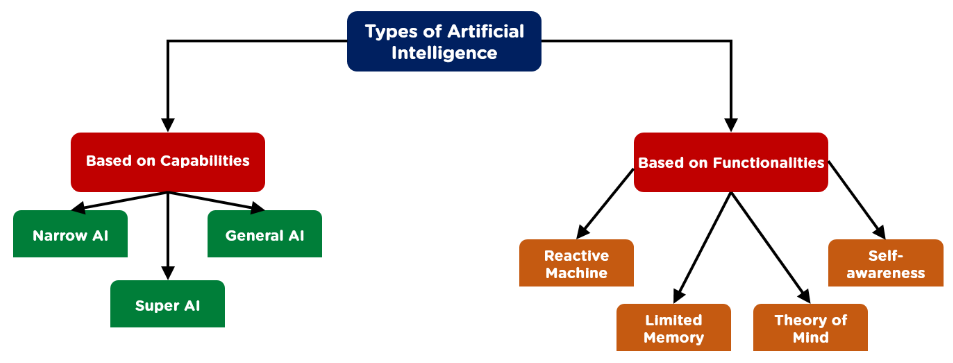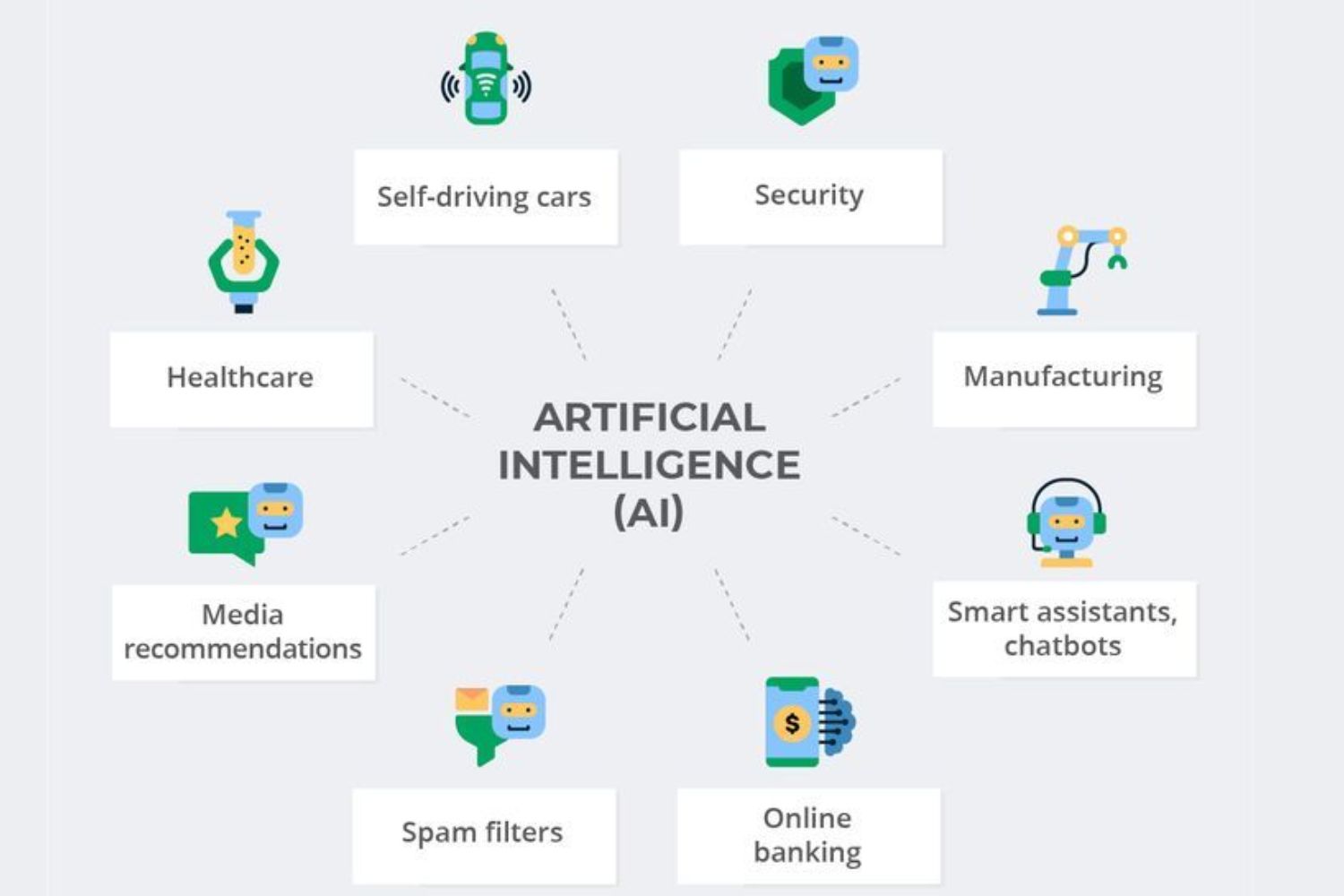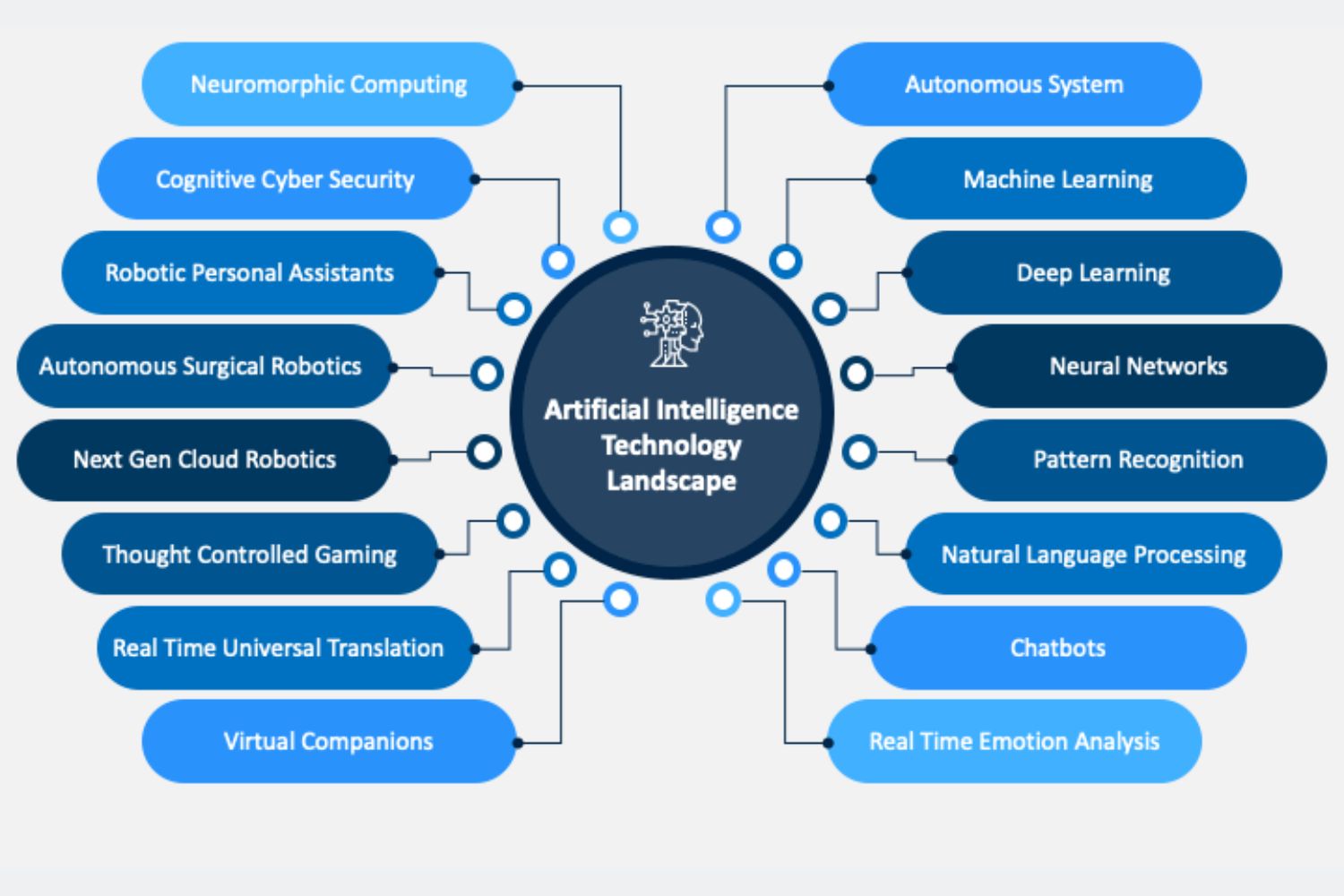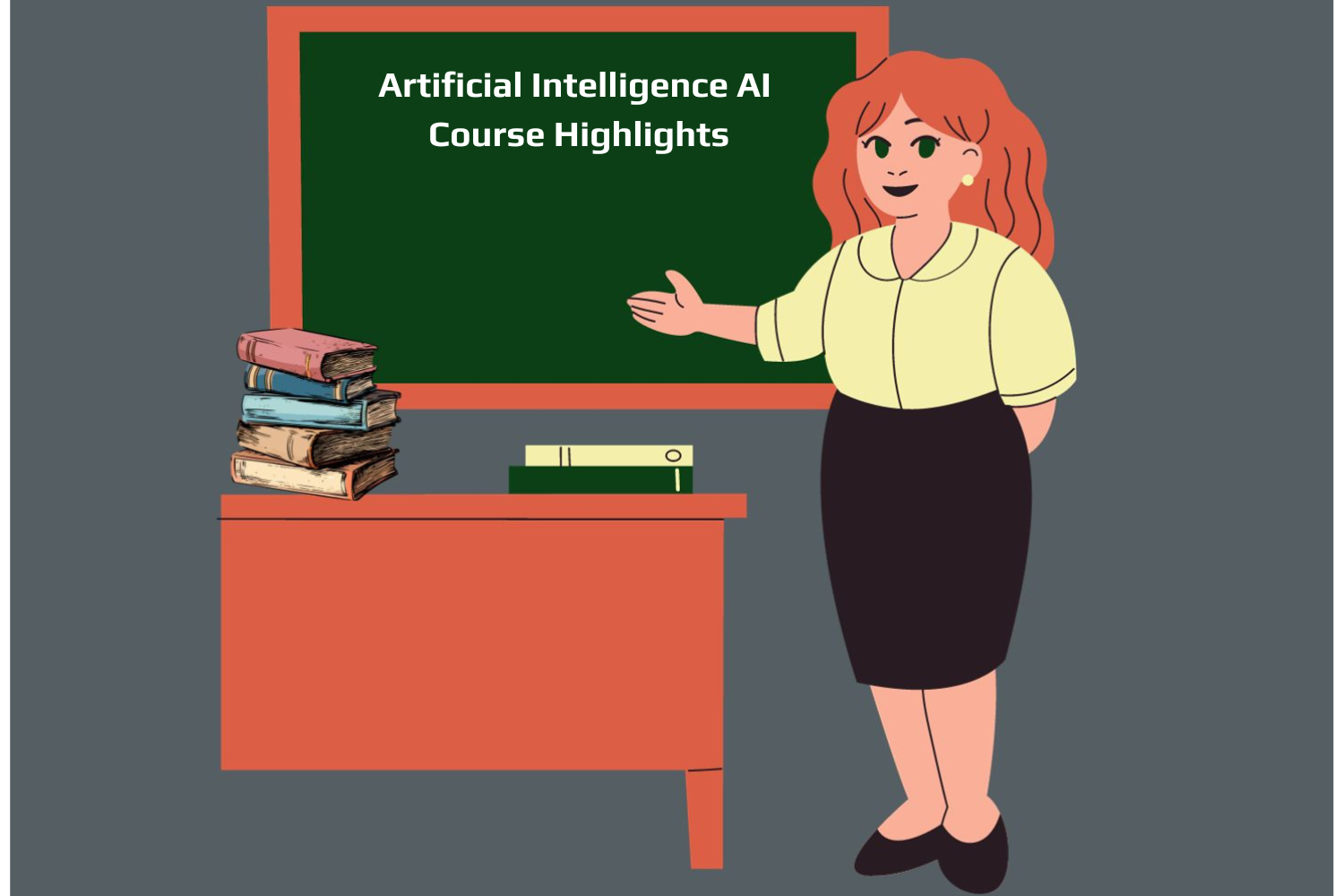
Artificial Intelligence AI
Artificial Intelligence (AI) is the field of computer science that focuses on creating machines and software that can perform tasks typically requiring human intelligence, such as learning, problem-solving, and decision-making. AI applications are wide-ranging, including virtual assistants, autonomous vehicles, medical diagnosis, and recommendation systems.

FUNDAMENTALS OF AI
The fundamentals of AI include:

TYPES OF ARTIFICIAL INTELLIGENCE
AI can be categorized into several types based on its capabilities and functionality. The main types of AI are as follows:

BENEFITS OF ARTIFICIAL INTELLIGENCE
Certainly, here are the key benefits of AI summarized in short points:

Personalization: AI tailors experiences by understanding user preferences, improving satisfaction.
Efficiency: AI optimizes processes, enhancing productivity and cost-effectiveness.
Healthcare Advancements: AI aids in medical diagnosis, drug discovery, and treatment planning, improving patient care.
Financial Insights: AI assists in risk assessment, fraud detection, and algorithmic trading, enhancing financial decisions.
Safety: Autonomous AI systems, like self-driving cars, increase safety in transportation and industry.
Language Understanding: Natural Language Processing (NLP) enables chatbots and voice assistants.
Innovation Acceleration: AI frees human resources from routine tasks, fostering creativity and innovation.
Environmental Sustainability: AI optimizes resource usage, contributing to eco-friendly practices.
These benefits highlight AI’s transformative impact across diverse sectors, but ethical considerations are essential to harness its advantages responsibly.
TECHNOLOGIES OF ARTIFICIAL INTELLIGENCE

JOB ROLES OF ARTIFICIAL INTELLIGENCE

5. NLP Engineer: Specializes in language-related AI applications like chatbots.
6.Computer Vision Engineer: Works on visual data processing and analysis.
7.Robotics Engineer: Designs AI systems for robots, including self-driving cars.
8.AI Ethicist: Ensures ethical and unbiased AI development and usage.
9.AI Project Manager: Oversees AI projects and teams.
10.AI Consultant: Provides expertise for AI implementation in businesses.
These roles play essential parts in AI’s development and application across industries.
COURSE HIGHLIGHTS
1. Suited for students, fresher’s, professionals, and corporate employees
2. Live online classes
3. 4-Month program.
4. Certificate of completion
5. Decision Oriented Program of Analysis
6. Live Classes by highly experienced faculties
7. Hands-on experience with real-life case studies

CONCLUSION
In conclusion, AI leads to transformative applications within a series of industrial, intellectual, and social applications, far beyond those caused by previous industrial revolutions. Furthermore, AI has proven to be superior to human decision-making in certain areas. As, AI is a transformative force which is reshaping our world. It has the potential to revolutionize industries, from healthcare and finance to transportation and entertainment. AI-driven technologies like machine learning and deep learning are powering breakthroughs in automation, data analysis, and decision-making. AI is not just a technology; it’s a path to a more efficient, innovative, and complex future that we must navigate with wisdom and responsibility.

